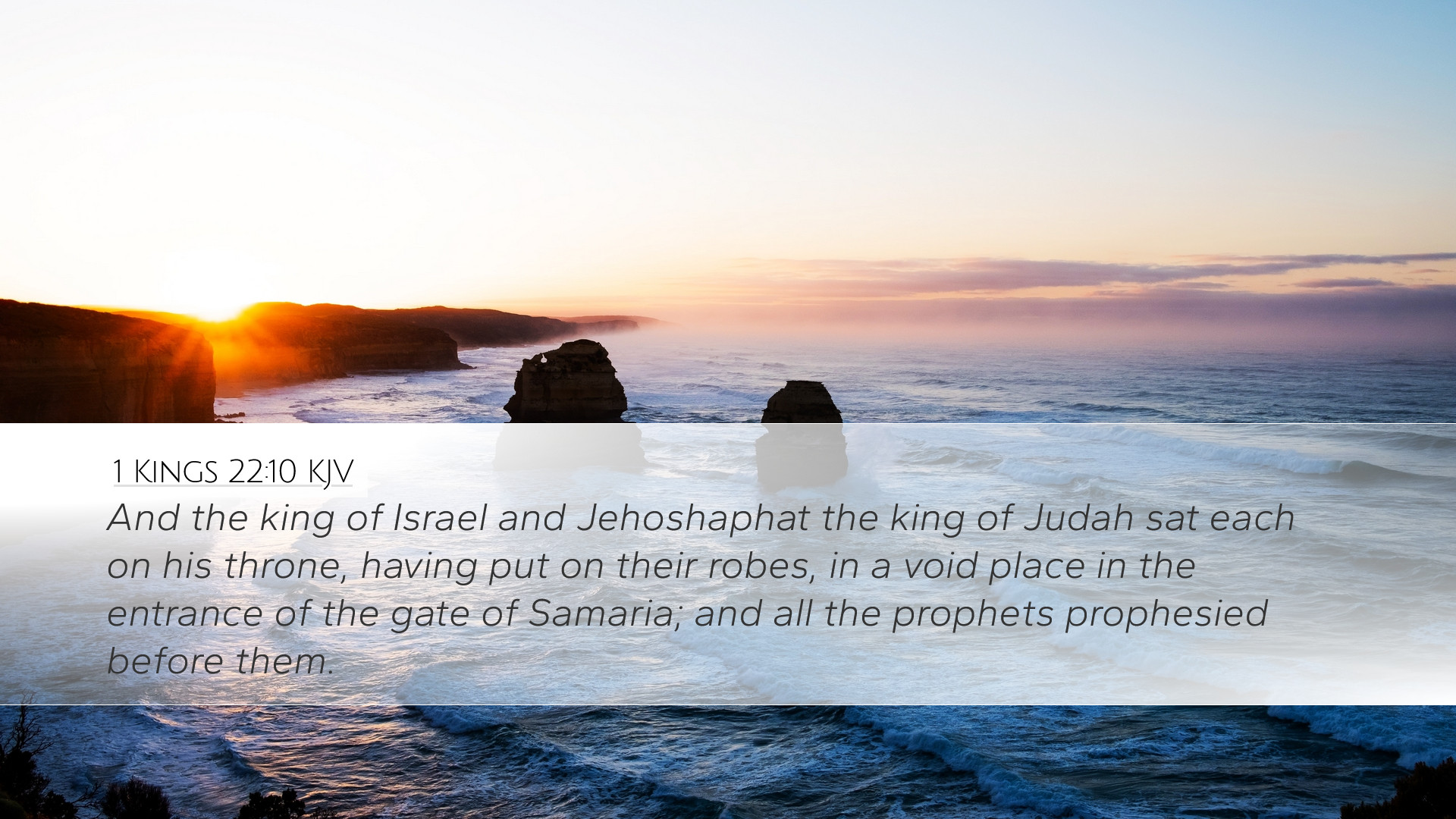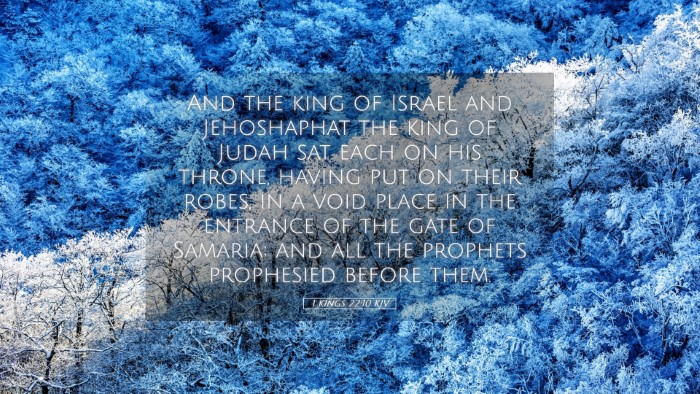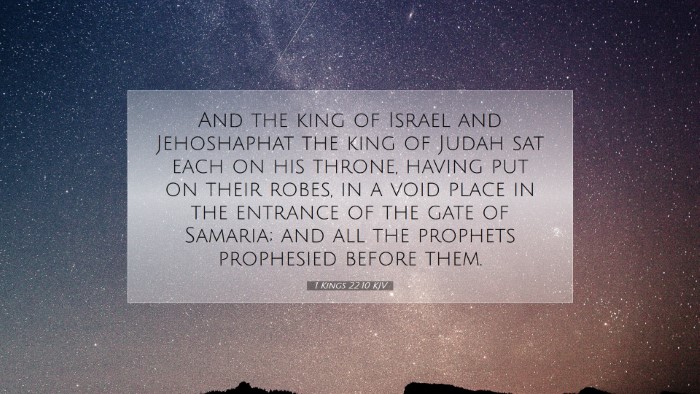Commentary on 1 Kings 22:10
1 Kings 22:10 states: "And the king of Israel and Jehoshaphat the king of Judah sat each on his throne, having put on their robes in a void place in the entrance of the gate of Samaria; and all the prophets prophesied before them." This verse gives a vivid depiction of a significant moment in Israel's history, particularly highlighting themes of leadership, prophecy, and the divine will.
Contextual Background
The historical context of this passage is crucial for understanding its implications. The interaction between the kings of Israel and Judah emphasizes the checkered alliances and the political maneuvers that were characteristic of the time. Jehoshaphat's alliance with Ahab, despite their differing religious practices, sets the stage for the unfolding drama centered around prophetic legitimacy and royal authority.
The Character of Ahab
Matthew Henry remarks on King Ahab's character, stating that he was often driven by a desire for confirmation of his own ambitions rather than a sincere seeking of God’s guidance. This is evident as Ahab calls upon both his prophets and Jehoshaphat to seek counsel about going to war against Ramoth-Gilead without primarily considering God's will.
The Role of Jehoshaphat
Albert Barnes notes the contrasting character of Jehoshaphat, who displayed a more righteous disposition but, in this instance, may have compromised his principles by allying with Ahab. His question, "Is there not here a prophet of the Lord?", signals an intention to seek divine counsel despite the prevalent falsehood surrounding them.
Significance of Prophecy
In this scenario, the multitude of prophets representing Ahab symbolize a common issue in biblical narrative—the prevalence of false prophets who often cater to the desires of those in power. Adam Clarke emphasizes that this moment showcases God’s tolerance towards human free will, allowing Ahad to receive the counsel he desires but devoid of divine endorsement.
The Setting: A Void Place
The 'void place' where they sat signifies a space that is both a literal and metaphorical position of indecision and moral emptiness. The physical proximity of these kings points toward the combined authority yet unholy alliance they form in their pursuit of military conquest.
The Impact of True vs. False Prophecy
Each prophet's declaration, as portrayed in this passage, raises important questions about the validity and source of prophetic words. Henry suggests that the "prophets" present were influenced more by the political climate and pressure from the kings than by genuine inspiration from God. This reflects a recurring biblical theme where the authenticity of leadership is scrutinized against God's truth.
Theological Implications
This narrative leads us to consider God’s sovereignty in conjunction with human agency. While the prophets proclaimed peace, Barnes reminds us of God's ultimate control over the events that unfold, leading to Ahab's downfall (1 Kings 22:37-38).
Lessons for Today's Leaders
For contemporary pastors, students, and theologians, this passage serves as a cautionary tale about leadership and the importance of seeking divine guidance over human approval. Clarke argues that the influence of corrupted leadership leads the people further from God, making it essential for leaders today to actively seek and adhere to the truth of God's message, ensuring their counsel aligns with Christ's teachings.
Conclusion
As we reflect on 1 Kings 22:10, we are reminded of the tension between divine truth and human ambition. The alliance between Ahab and Jehoshaphat, coupled with the prophetic voices present, forces us to ask deeper questions regarding our own spiritual pursuits. Are we, like Ahab, seeking the affirmations we desire, or are we genuinely seeking the will of God in all areas of our lives and ministries?
Ultimately, this passage highlights the necessity for discernment in understanding God's voice amidst the clamor of popular opinion, reinforcing the need for leaders to commit fully to the teachings of Scripture and the guidance of the Holy Spirit.


